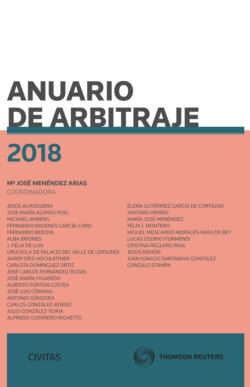Читать книгу Anuario de arbitraje 2018 - Mª José Menéndez Arias - Страница 7
На сайте Литреса книга снята с продажи.
II. WHAT IS MEANT BY THE «AMERICANIZATION» OF INTERNATIONAL ARBITRATION, AND WHY DOES AMERICANIZATION MATTER?
ОглавлениеBefore discussing whether and to what degree international commercial arbitration has been Americanized, we must first get an idea of what is meant by «Americanization». As Professor William «Rusty» Park put it: «one frequently hears complaints about the “Americanization” of arbitration, usually related to aggressive litigation tactics that include hefty boxes of unmanageable exhibits, costly pre-trial discovery and disruptive objections to evidence1).» Although the features noted by Professor Park are typical in the literature on the topic, there is no definitive consensus on what is or is not considered Americanization2).
The most commonly mentioned aspect of Americanization seems to be expansive discovery, with emphasis on the notorious «fishing expeditions» of American litigation3). Other procedures that receive mention are challenges to arbitrators4), testimony by party witnesses5), witness preparation6), and cross-examination7). Obstinate, ungentlemanly, or ruthless tactics are also often labeled as symptoms of Americanization8). For most of these procedural devices and attitudes, their origins can be traced back to the party-driven, adversarial nature of common-law litigation, a process designed to seek the truth9) while safeguarding lay juries from lawyers’ attempts to manipulate and distort that truth10). Notably, discussions of Americanization are most often restricted to the style or practices used during an arbitration proceeding, rather than addressing an Americanization of the law applied to the merits of disputes11).
Why does Americanization matter? It matters because the continued success and viability of international commercial arbitration as a dispute-resolution mechanism depends entirely on the will of the parties to commercial contracts. If the consensus perception becomes that international arbitration is merely off-shore American litigation, that it is over-regulated, over-technical, and therefore over-expensive and slow, then potential users, particularly those who dislike or are simply unfamiliar with US-style litigation, will seek alternatives to arbitration. Meanwhile, those parties who embrace US-style litigation will continue to arbitrate disputes amongst themselves, leading to ever greater alienation of those who disfavor such practices and styles12).
Fortunately, while international arbitration has indeed undergone a process of Americanization over the past thirty years, the change has not been so radical or so one-sided as to render international arbitration unattractive to non-US parties. Quite the opposite: the popularity of international arbitration has grown rapidly despite its alleged Americanization, and it is increasingly being utilized by parties from all regions of the world13). Nevertheless, the international arbitration community should always remain sensitive to the needs of its users but should not forget that it also has the power to shape those users’ perceptions of international arbitration. One way to improve the perception of international arbitration in the eyes of those who think it has become too expensive or slow may be to avoid overstating (or lamenting) the extent to which it has become Americanized.
